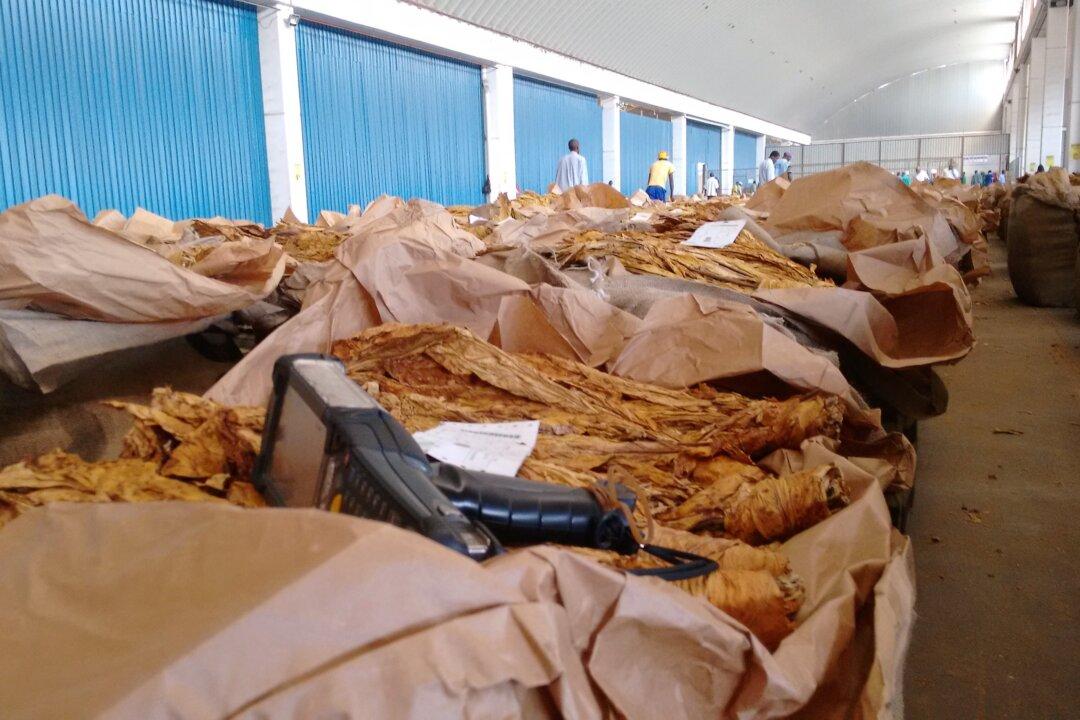MUTARE, Zimbabwe—Tobacco farming in Zimbabwe is booming, buoyed by the growing demand for tobacco in China, but experts are raising concerns over the rampant use of child labor on tobacco farms.
Up to 166,000 mostly small-scale farmers have registered to grow the crop during the 2018–2019 farming season, up from 103,000 the previous season, according to Zimbabwe’s Tobacco Industry and Marketing Board.





